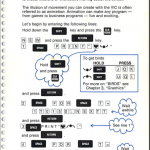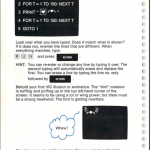WordPress uses memory. Plugins and themes use memory. New versions of software may use more memory than before. When that happens and PHP on your server doesn’t have enough memory then PHP will stop with a fatal error like this:
Fatal error: Allowed memory size of 67108864 bytes exhausted (tried to allocate 1203208 bytes) in /home/*****/public_html/wp-admin/includes/class-pclzip.php on line 4215
This happens quite a bit but it’s not a bug in WordPress or your new plugin or theme, you simply need to let PHP use more memory on your server. Thankfully WordPress makes it easy to do this. You must define a constant, WP_MEMORY_LIMIT in your server’s wp-config.php like this:
define(‘WP_MEMORY_LIMIT’, ‘128M’);
The error message will give you an idea of how much memory is required. The error message says it tried to allocate 1203208 bytes or just over 1MB of memory. The limit here is 67108864 bytes, or 65536KB which is 64MB so here I’d need a WP_MEMORY_LIMIT of more than 66M. The error message will go away once PHP has enough memory but be sure to test it.
If you allocate too much memory your server could start eating into disk swap space. Also be aware that each Apache child process is allowed to use that much memory so if you had ten processes it could use ten times the memory limit in a worst case scenario. If that happens you’ll need more RAM or you’ll have to figure out what’s using so much memory.
There’s also a WP_MAX_MEMORY_LIMIT constant. By default it’s 256M and it’s currently only used when uploading images.
On the off chance that you don’t have WordPress installed and you came here from a search engine, then you’ll want to use ini_set() somewhere early in the PHP process to increase the memory limit:
ini_set(‘memory_limit’, ‘128M’);
Finally, I love that the wp-config.php codex page is the first result of a search for WP_MEMORY_LIMIT.








